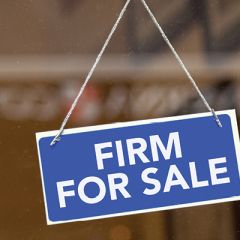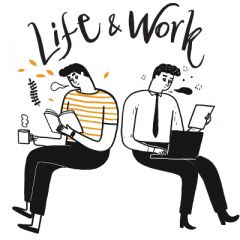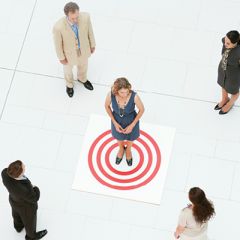Among Illinois’ new laws taking effect Jan. 1, 2022, the Transfer on Death Instrument (TODI) Act has been significantly amended to better provide another option for clients seeking cost-effective and straightforward ways to transfer real property at death, writes Charles G. Brown in his February 2022 Illinois Bar Journal article, “The New & Improved Transfer on Death Instrument Act.”
Illinois Bar Journal
-
January 31, 2022 | Practice News

-
January 24, 2022 | Practice News

Child pornography sits at the crossroads of constitutional and criminal law, writes Christopher Keleher in his January Illinois Bar Journal article, “Defining Lewdness.” Keleher notes that nudity is not the dividing line between free speech and prison, as the U.S. and Illinois Supreme courts hold that nudity—without more—is constitutionally permissible. Instead, there must be sexual conduct involving a minor to be pornographic. But the concept of child pornography is expanding beyond images of sexual conduct to include those that depict children in ways a viewer might perceive as sexual.
-
January 18, 2022 | Practice News

While some protective orders have existed statutorily in Illinois for at least a decade and hearing and issuing these types of protective orders has become part of the normal course of business in most courthouses, in 2017, the Illinois legislature passed House Bill 3718, which went into effect on Jan. 1, 2018, creating a new statutory framework for issuing protective orders in conjunction with criminal charges.
-
January 10, 2022 | Practice News

Sell? Buy? Hold? That has been the lawyers’ dilemma during the COVID-19 pandemic and its aftermath. COVID-19 has proven to be an unforeseen accelerant in the law practice sale marketplace. Many senior solo and small-firm practitioners are motivated to sell their practices while less-seasoned lawyers recognize buying opportunities to build their existing practices.
-
January 3, 2022 | Practice News

There is no doubt that being a successful attorney requires hard work. But is it possible to put in the hours while having enough left over for your personal life? In the January Illinois Bar Journal’s cover article, “A Balanced Life,” the IBJ interviews several hard-working attorneys—young and seasoned—who also have worked hard to balance career and life.
-
December 13, 2021 | Practice News

Earlier this year, the ISBA Steering Committee on Racial Inequality had the opportunity to collaborate with State Sen. Elgie R. Sims Jr. (D-Chicago) and to discuss the Illinois Legislative Black Caucus’s effort on the then-Criminal Justice, Violence Reduction and Police Accountability bill. In the December Illinois Bar Journal, authors of the column The Resolution, written by the cochairs of the ISBA Steering Committee on Racial Inequality, spoke with Sen. Sims to revisit progress made since the bill was passed and ongoing efforts to reform criminal justice policies in Illinois.
-
December 8, 2021 | ISBA News

The 2022 first place winner of the Lincoln Award Legal Writing Contest is Daniel C. Katzman, a partner at Katzman & Sugden, LLC, Belleville, who wrote “A Brave New World of Digital Payments for Lawyers?” Daniel's article will appear in the February issue of the Illinois Bar Journal.
-
December 6, 2021 | Practice News

In her December Illinois Bar Journal article, “A Firefly Is Not a Fly Made of Fire,” Lauren Riddick makes a convincing case that many mortgage foreclosure filing preconditions have been mischaracterized as a “condition precedent,” resulting in a stricter standard of compliance for lenders than would otherwise be required.
-
November 29, 2021 | Practice News

You’ve heard about “implicit bias” and “microagression.” What about “microinvalidations” and “microinsults”? The cover story for December’s Illinois Bar Journal wades into these sensitive terms based on interviews with Dana and Keith Cutler, cohosts of the television show, Couples Court With the Cutlers.
-
November 22, 2021 | Practice News

In his November Illinois Bar Journal article, “Coronavirus & Disability Insurance: Trends to Follow,” David A. Bryant notes that 2020 and 2021 have been defined, in great part, by the COVID-19 pandemic. While vaccination efforts are providing a glimmer of hope, the novel coronavirus will affect our lives—and disability insurance claims—for the foreseeable future.

